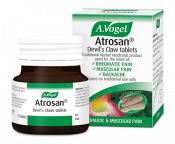What are muscle cramps?
Muscle spasms are strong, painful, involuntary contractions of one or more of your muscles; a sustained muscle spasm is known as a muscle cramp. They can occur in any muscle (although leg and foot muscles are perhaps the most common) and can last from a couple of seconds to a couple of minutes.
What is the difference between a muscle cramp and a pulled muscle?
A pulled muscle occurs when your muscle is injured, torn, or strained, whereas muscle cramps normally only last a short amount of time.

Types of muscle cramps
True cramps
True cramps involve all or part of a single muscle or group of muscles that act together such as the muscles that flex the fingers. Most experts agree that true cramps are caused by hyperexcitability of the nerves that stimulate the muscles.
Dystonic cramp
A dystonic cramp is where muscles that are not needed for an intended movement contract. Dystonic cramps normally effect small groups of muscles such as the eyes, neck, and fingers. These kinds of cramps normally occur during repetitive exercise e.g. writer’s cramp, or playing a musical instrument. They are less common than true cramps.
Tetany
Tetany is where all of the nerve cells in the body are activated, which then stimulate the muscles. Tetanic cramps are sometimes indistinguishable from true camps.
Causes of muscle cramps:
• Fatigue – as you get tired during exercise your muscle reflexes become less functional which can then trigger a cramp.
• Injury – muscle spasm may occur as a protective mechanism following an injury, the spasm will try to minimise movement and stabilise the area.
• Dehydration – sodium depletion has been associated with cramps and normally occurs during dehydration.
• Muscle strain – cramps are likely to occur when we put too much pressure on muscles, overuse them, or tear them during vigorous exercise.
• Night cramps – abnormal nerve activity during sleep which causes the muscle to cramp.
• Sitting too long in the one position – this can restrict the blood supply to the muscle, causing a cramp.
• Mineral depletion – too little potassium, calcium, or magnesium can contribute to leg cramps. Low blood calcium and magnesium increase the activity of muscle tissue. Check out our blog eat away your muscle pain with magnesium for information on foods rich in magnesium as well as some tasty recipes to try! Low blood calcium can not only cause muscle spasms but also a sensation of numbness and tingling around the affected area. Low potassium blood levels can occasionally cause cramps although it is more common for potassium to be associated with muscle weakness.
• Varicose veins – people with varicose veins have a higher chance of experiencing muscle cramps. This is because the valve in varicose veins can result in a build-up of deoxygenated blood which makes the muscles more prone to cramping.
• Tendon shortening – tendons connect muscle to bone and naturally shorten over time as we get older. If they become too short it can cause connected muscles to cramp.
• Diuretics – these remove fluid from the body and are used to treat high blood pressure, heart failure, and some kinds of kidney disease. Because diuretics remove fluids they can lead to dehydration and then muscle cramps.
How to prevent muscle cramps
As there is no one clear direct cause of muscle cramps there is no one definitive cure either. However, I’ve listed some of the ways which you can help prevent them and ease them if they do happen.
Stretch
Most muscle cramps can be stopped if the affected muscle can be stretched. If you are prone to cramping in a particular area practice exercises to stretch the affected muscles three times a day. Stretching before and after exercising will help prevent cramps caused by vigorous exercise. Nocturnal cramps can also be prevented by doing some simple stretching exercises before bedtime.

Extra support
Dystonic cramps caused by repetitive activities can be prevented by providing your muscles with extra support such as wrist supports, adjusting your seated position and chair, and giving yourself regular breaks to allow the muscles to relax. Take regular breaks, trying to push through a muscle cramp often makes it more severe.
Hydration
Drink plenty of water to help keep you hydrated, try spicing it up with some fruit or cucumber for a fresh natural taste. Alternatively, try mixing a Balance Mineral Drink sachet in with your water to provide you with the electrolytes, magnesium, calcium, and potassium that are thought to contribute to muscle cramps.
Hot bath
Many healthcare professionals suggest a hot bath or heating pad can provide relief from cramps. They also advocate applying magnesium on the affected area outside of your body in the form of Epsom salts. Try adding in some essential oils to help ease cramps as well as make your bath smell incredible! Cypress oil helps to improve circulation, ylang ylang reduces tension and stress, and peppermint oil is a great natural anti-inflammatory.
Many professional athletes have acupuncture therapy or cupping therapy to massage and release tension held in the muscle tissue. Try massaging the affected area with Atrogel, which is a herbal remedy containing arnica traditionally used to relieve muscle and joint pain and stiffness.
When are cramps a cause for concern?
Muscle cramps happen to most of us at one point or another and are usually harmless. However, if you think you think your muscle cramps are caused by any medication you take or if your muscle cramps are persistent please speak with your doctor to rule out any underlying medical conditions that could be causing your cramps.
Originally written on 28/07/2017, updated on 24/09/2018.






 Looking for a treatment to relieve pain in conditions such as muscle aches or pains, stiffness, rheumatic pain or after sporting injuries?
Looking for a treatment to relieve pain in conditions such as muscle aches or pains, stiffness, rheumatic pain or after sporting injuries?

